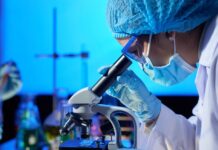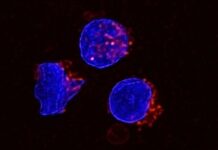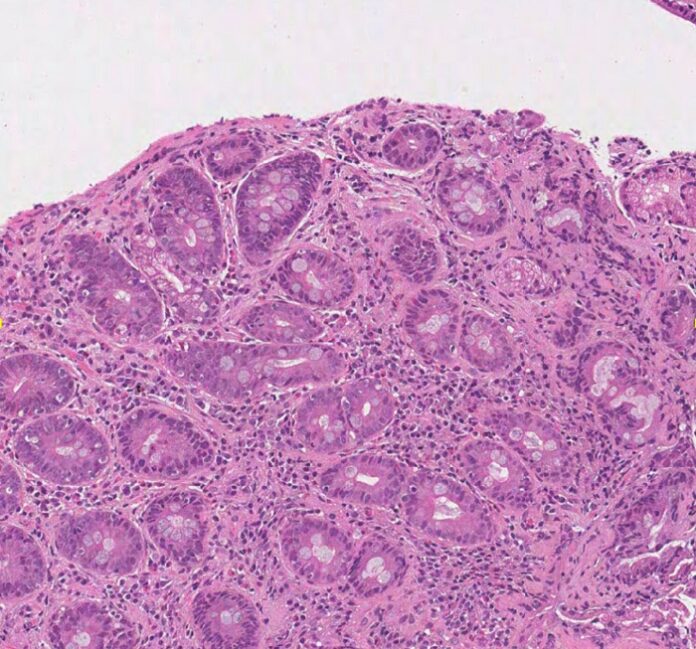AI Tool Accurately Detects Celiac Disease in Biopsies
Cambridge scientists have developed a machine learning algorithm that can identify celiac disease with 97% accuracy based on biopsy images. This innovative AI tool, trained on nearly 3,400 scanned biopsies from four NHS hospitals, has the potential to speed up diagnosis, reduce pressure on healthcare resources, and improve detection in regions with a shortage of pathologists.
AI’s Role in Enhancing Diagnostic Efficiency
Digital tools designed to streamline diagnostic processes are proving highly effective in reducing the workload of pathologists. While AI-driven diagnostics have predominantly focused on cancer detection, researchers are now exploring its potential for identifying other diseases, including celiac disease.
The Challenges of Diagnosing Celiac Disease
Celiac disease is an autoimmune condition triggered by gluten consumption, leading to symptoms such as stomach cramps, diarrhea, skin rashes, weight loss, fatigue, and anemia. Due to its varied presentation, obtaining an accurate diagnosis can be challenging and time-consuming.
Currently, the gold standard for diagnosis involves a biopsy of the duodenum (a part of the small intestine). Pathologists analyze the sample under a microscope or on a computer, searching for damage to the villi—tiny, hair-like structures that line the intestine. However, interpreting these biopsies can be subjective, as changes are often subtle. Pathologists rely on the Marsh-Oberhuber scale, which ranges from 0 (normal villi, unlikely celiac disease) to 4 (completely flattened villi).
Training the AI Algorithm for Accurate Diagnosis
Cambridge researchers developed a machine learning model capable of classifying biopsy images with high precision. They trained and tested the AI on a diverse dataset of over 4,000 images from five hospitals, using scanners from four different manufacturers. The algorithm’s robustness ensures its applicability across various healthcare settings.
Professor Elizabeth Soilleux from the University of Cambridge’s Department of Pathology emphasized the significance of this breakthrough. “Celiac disease affects up to one in 100 people and can cause severe health issues. Unfortunately, diagnosis can take years, particularly with current pressures on healthcare systems. AI can expedite this process, allowing patients to receive faster diagnoses while alleviating the burden on NHS waiting lists.”
AI Matches Pathologists in Diagnostic Accuracy
To validate the AI’s effectiveness, researchers tested it on an independent dataset of nearly 650 biopsy images from a previously unseen source. The model demonstrated a sensitivity of over 95%, correctly identifying individuals with celiac disease in more than 95 cases out of 100. It also achieved a specificity of nearly 98%, accurately recognizing individuals without the disease in almost 98 cases out of 100.
Previous research revealed that even experienced pathologists often disagree on celiac disease diagnoses. In one study, when reviewing 100 biopsy slides, pathologists had differing opinions in over 20% of cases. In this latest study, when four pathologists reviewed 30 slides, they were as likely to agree with the AI’s diagnosis as they were with another pathologist’s interpretation.
Dr. Florian Jaeckle from the Department of Pathology at Cambridge highlighted the AI’s consistency across different conditions. “This is the first time AI has matched the diagnostic accuracy of experienced pathologists for celiac disease. Since we trained the model on diverse datasets, it can function effectively in a variety of clinical settings. Our next step is to test the algorithm on a larger sample, moving us closer to regulatory approval and potential NHS integration.”
Patient Perspectives and Future Implementation
As reported by medicalxpress, the research team collaborated with patient groups, including Celiac UK, to assess public perception of AI-driven diagnostics. Dr. Jaeckle noted, “Patients are generally receptive to AI tools for celiac disease diagnosis, largely due to their struggles with obtaining timely and accurate diagnoses. However, concerns about AI ‘explainability’—understanding how the model arrives at its conclusions—remain an important consideration for both patients and clinicians.”
Professor Soilleux and Dr. Jaeckle have founded Lyzeum Ltd, a spinout company aimed at commercializing the AI algorithm. Keira Shepherd, Research Officer at Celiac UK, stressed the importance of swift and accurate diagnoses. “Patients must continue consuming gluten during the diagnostic process, which can be uncomfortable. Accelerating diagnosis through AI could significantly improve patient outcomes.”
Towards a Future of AI-Driven Celiac Diagnosis
This research underscores AI’s potential to revolutionize celiac disease diagnosis, ensuring faster, more reliable results while reducing strain on healthcare professionals. As the team moves forward with larger-scale clinical trials, the future looks promising for AI integration in diagnostic medicine.
























